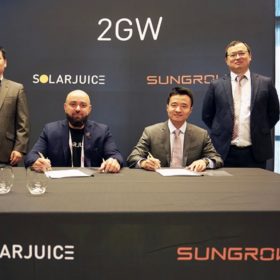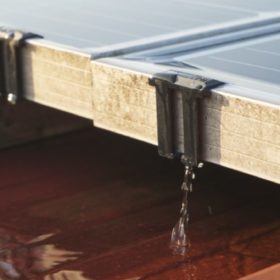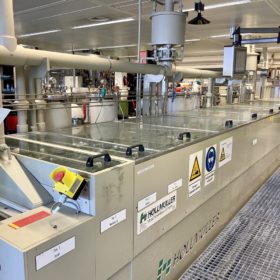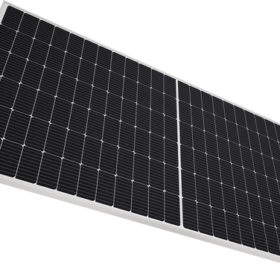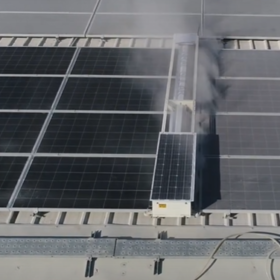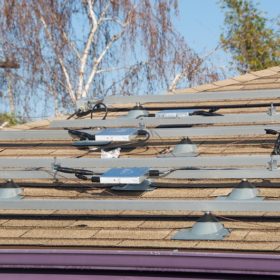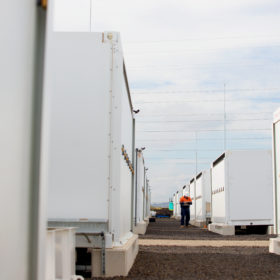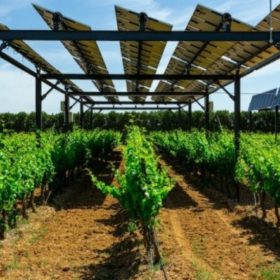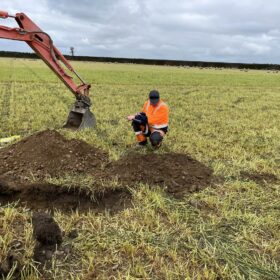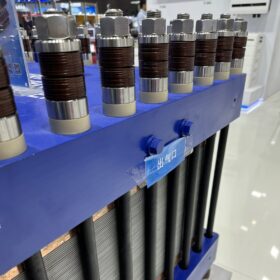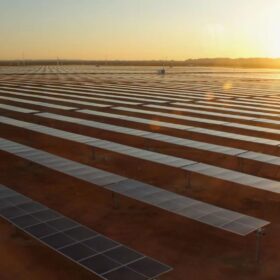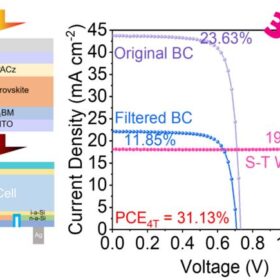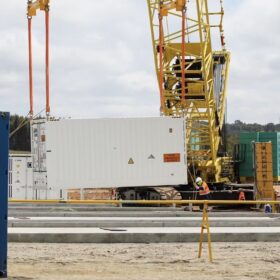US government announces $4.4 billion of funding for battery manufacturing, processing, recycling
US$3.1 billion (AU$4.4 billion) is available to increase production of American-made batteries, with a separate US$60 million (AU$85 million) to support second-life applications for used EV batteries, along with development of processes for recycling materials back into the battery supply chain.
Weekend read: 2 GW Sungrow and SolarJuice distribution agreement is Australia’s largest
The partnership between Chinese inverter maker Sungrow and Sydney-based wholesaler Solar Juice has been taken to a new level after the partners signed a 2 GW capacity distribution contract.
New water-draining device for rooftop PV systems
Portuguese startup Solarud has developed a way to eliminate soiling around the frames of PV panels with low inclination slopes. The device drains water that would otherwise stay stagnant on the surface of modules.
Fortescue provides backing for Dutch solar module maker
Fortescue Future Industries continues to advance its green energy ambitions, announcing it will provide new funding for Dutch solar PV module maker HyET Solar in a move designed to accelerate a planned expansion of the company’s manufacturing plant in The Netherlands.
Sharp launches 540 W bifacial solar module
Sharp’s new IEC 61215 and IEC 61730-certified-certified panel features 144 half-cells based on M10 wafers and a 10-busbar design. Its operating temperature coefficient is -0.349% per degree Celsius and its power tolerance reaches up to 5%.
Self-powered, dry-cleaning robot for solar panels
Enray Solutions has developed an autonomous, water-free cleaning robot for ground-mount solar installations that draws its power from an on-board PV panel and battery. The robot is designed to withstand the harsh environmental conditions of all kinds of terrain.
Enphase predicts another revenue landmark this quarter
Enphase expects the volume of business generated to rise again for the April-June period, accompanied by another bump in battery shipments.
Weekend read: Back to the future with BESS
Bearing witness during battery energy storage system manufacturing can reveal potential failure points and is crucial given the industry’s relative immaturity, argues Frédéric Dross, the vice-president of strategic development for quality assurance provider STS. And much can be learned from the early days of solar.
US body cuts PV forecast 46% due to anti-circumvention investigation
The latest update to the Solar Energy Industries Association’s (SEIA) survey for solar workers and companies shows drastic outcomes for the industry if tariffs are imposed on countries under investigation.
France defines standards for agrivoltaics
France’s environmental agency Ademe has released a set of new guidelines that clearly define “agrivoltaics.”

